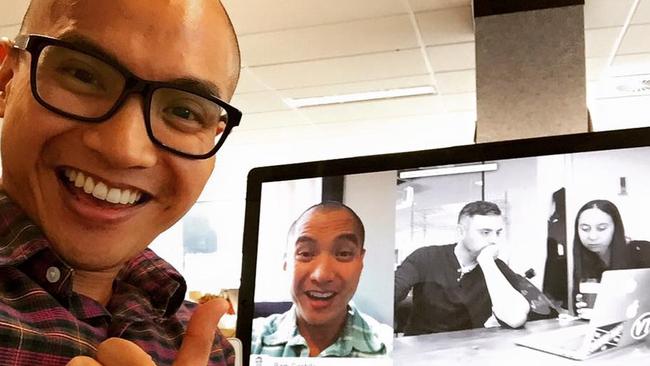How to avoid the unemployment scrap heap
IT’S the ultimate catch-22: you need a degree, but employers want candidates with experience. There’s one thing that can make all the difference.

IT’S THE catch-22 of the jobs market: you need a degree to compete, but employers want candidates with experience.
And if there’s one thing you don’t gain in most university courses, it’s the practical skills and understanding needed to excel in real life.
The conundrum has become so frustrating to employers that some have thrown the degree requirement out the window, while one law firm controversially asked candidates to pay $22,000 for a two-year graduate program — a plan that was scrapped amid cries of elitism.
“Year after year I listen to concerned employers who are worried that each fresh wave of graduates simply does not possess the skills required to excel in the modern world of work, or even get their foot in the door,” said Alistair Cox, the chief executive of recruitment giant Hays.
“They’ve spent at least three years racking up debt to study a course that will not help them find a relevant role.”
Setting yourself up for a career takes planning and foresight, and the earlier you can get relevant work experience, the better.
“While employers often look for technical or vocational knowledge first, many students leave university or higher education without any relevant experience because many courses are not geared toward this — yet employers value graduates with experience,” Mr Cox said.
“Even a few weeks spent in the industry or sector they ultimately wish to enter puts graduates ahead of other candidates without such experience.”
‘MY SECRET WEAPON’
For Ram Castillo, who scored his dream job as a senior designer at a top Sydney ad agency before going freelance three years ago, getting work experience was a daunting prospect.
Having grown up in a low-to-middle-income migrant family and with no connections to speak of, Castillo had to endure repeated rejections before getting his foot in the door with a Year 10 work experience placement.
“I literally rang 99 design companies under the ‘Graphic Design Services’ category of the White Pages,” Castillo writes in his new book, How To Get A Mentor As A Designer, Guaranteed.
“Try one more,” his careers adviser urged.
He pushed through, and ended up gaining not just experience, but a connection that would prove invaluable.
After a two week stint at a small design studio in Sydney’s Surry Hills, Castillo kept in touch with the creative director, who became a long term mentor.
Six years later, a call out of the blue would result in a job offer that would be pivotal to his career.
“I’ve just started a new agency. We’re pitching for a big client and could use your help,” said Ian Wingrove.
Castillo helped out for a week, and when the agency won the account, he was immediately offered a fulltime job.
“If it wasn’t for working for Ian, I wouldn’t know how to run a business, how to communicate to clients, how to manage my emotions and keep it professional, how to lead from the front, how to manage ethically,” Castillo told news.com.au.
Three years in the role paved the way for a successful agency and freelance career working for clients such as Louis Vuitton, Ford, American Express, Audi, Telstra, McDonald’s, Bonds and Westpac.
‘THEY’VE PLAYED THE GAME’
Having a mentor was the key to cutting guesswork from career moves, he said, in order to avoid “burning time and energy reinventing the wheel”.
“Industries are pointing the fingers at education institutions saying they’re not delivering job ready grads, while educational institutions are saying experienced industry professionals are doing nothing to help them ... Mentors are absolutely crucial in this information gap,” Castillo said.
While young people often felt intimidated to approach successful professionals in their field, he said it was important to remember that mentors were human, too — and that mentorship was a two-way street, with mentees having plenty to offer.
For example, older professionals could benefit from a digital native’s intuitive understand of social media.
“From a distance, it’s easy to assume that a mentor is more intelligent, more fearless and gifted than you in your current state,” he said.
“But it’s not that at all. It’s just that they’ve played that game before, over and over again.
“The fear, the anxiety, the challenges, the unknown, are and will always be there ... The big difference is that over time, you’ll simply learn how to manage those emotions better.”
Originally published as How to avoid the unemployment scrap heap







